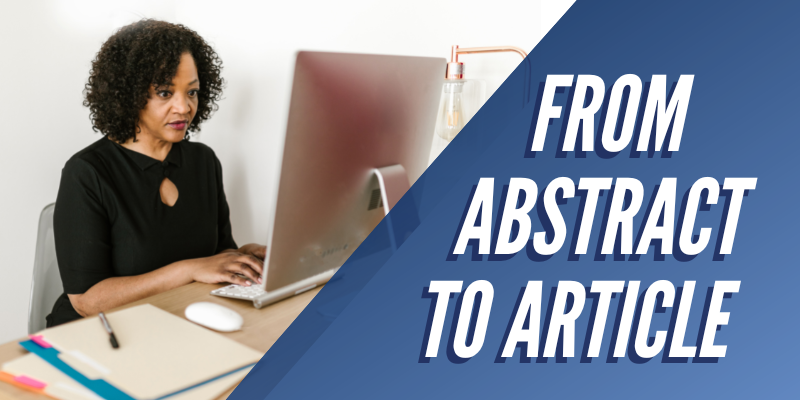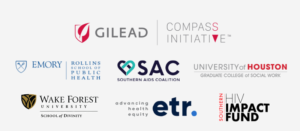Q&A with COMPASS Coordinating Center Directors
Our first contributors need no introduction. Well-known in their respective fields, Patrick Sullivan, PhD, DVM, Nic Carlisle, JD, and Samira

The Gilead COMPASS Initiative® invites you to write a full article that will be featured in an upcoming supplemental issue of the Journal of Health Care for the Poor and Underserved (JHCPU) to celebrate the 5th anniversary of the 10-year initiative.
The Gilead COMPASS Initiative® addresses the HIV/AIDS epidemic in the Southern United States by collaborating with local community organizations and stakeholders to use grassroots and evidence-based solutions to meet the needs of people living with and impacted by HIV/AIDS. We wanted to share this exciting opportunity so you can share the impact of your work!
Please note that this opportunity is only open to COMPASS partners that receive an invitation to write a full article after submitting an abstract in July 2022. COMPASS is grateful for everyone that submitted an abstract, and recognizes the amount of work it takes to prepare abstracts and manuscripts to academic journals. To honor your time, we will work to highlight all manuscripts submitted on COMPASS communication channels (e.g., blog on website, abstract submission to conference, etc.) regardless of whether or not it was selected for journal publication.
The deadline for submission of full manuscripts is November 17, 2022 at 2:59 AM CT, 3:59 AM ET (November 16, 2022, 11:59 PM PT). All article submissions should include a full manuscript, author page, abstract, and references to be submitted via the JHCPU portal: http://mc.manuscriptcentral.com/JHCPU .
Writing Resource & Tips
Resources:
You may also review these sample manuscript for ideas on how to write and format an academic article:
• Research Paper Sample
• Commentary Sample
• Report from the Field Sample
• Heroes
Use the links below to help you through your writing process:
• Purdue OWL – For research and citation resources
• Purdue OWL – For general writing resources
• Google Scholar – For searching for scholarly literature across publishing formats and disciplines.
• PubMed – For citations for biomedical literature
Keep In Mind:
As you write your abstract (article), please keep the 10 Year COMPASS goals and values in mind:
• Improve access to and quality of health care services for people living with HIV/AIDS (PLWHA) in the South
Increase access to stigma-free care that incorporates wellness, mental health, trauma-informed care and substance use/harm reduction approaches, and is backed by a sustainable infrastructure to ensure longevity
• Increase local leadership and advocacy in the South
Build a robust network of strong local leadership for advocacy focused on resource allocation and evidence-based policies to address HIV/AIDS in the Southern United States
• Change public perception of HIV/AIDS in the South
Create strategic communication campaigns that resonate with residents in the South to counter fear-based stigma and educate local leaders to support policy changes that better support the needs of PLWHA
The four COMPASS Coordinating Centers, the Southern HIV Impact Fund (SHIF), GLAAD, and our evaluation partner ETR are committed to reflecting the shared values (linked below) through our implementation of this initiative and will favor abstracts and articles that reflect Meaningful Involvement of People Living with HIV/AIDS (MIPA); Intersectionality emphasizing Racial and Social Justice; Openness, Transparency and Learning; Collaboration and Commitment, and Holistic Approaches. More information and a detailed description of the COMPASS shared values, mission and vision can be found here. The Southern HIV Impact Fund has an additional value and commitment to address social injustices from an intersectional approach.
Frequently Asked Questions (FAQs)
What is the Gilead COMPASS Initiative®?
The Gilead COMPASS Initiative® (COMmitment to Partnership in Addressing HIV in Southern States) is a 10-year, $100+ million partnership with community-based organizations working to combat the HIV epidemic in the Southern United States. This work happens through grantmaking and capacity building through the Coordinating Centers – Emory University Rollins School of Public Health, Southern AIDS Coalition, University of Houston Graduate College of Social Work, and Wake Forest University School of Divinity; the Southern HIV Impact Fund; and Gilead direct giving.
What are the benefits of being published in the journal?
• Sharing the outcomes of your organization’s programs, interventions, methods or practices will allow you to have influence on how a broader audience can better engage and implement effective policies, programs and interventions for HIV in the Southern US.
• Publishing in a journal is also a great means for you to continue to become known as a subject matter expert in your field as others are exposed to your work.
• Publishing can raise your profile among potential funders and build credibility for your work.
• Sharing your practices, methods and strategies can contribute to the body of knowledge and practices for the community and make your work more accessible.
This Supplemental Issue will be Open Access. What does Open Access mean?
Academic journal articles often cost money to access.
Individuals who are affiliated with an institution, such as a college or university, often have access to academic articles through their college or university library. However, this also means that most academic articles are not accessible to the general public. Open Access articles are available for anyone to read and download without such associated costs. The entire Special Issue on COMPASS will be made open access and available to the public for free.
What are tips for writing a good manuscript?
See the attached Information for Authors for ideas of writing a good manuscript.
Who do I contact if I have any questions?
For more information about this opportunity, visit the Gilead COMPASS Website at www.gileadcompass.com to access a number of tools prepared to assist with this project, or email info@gileadcompass.com.

Our first contributors need no introduction. Well-known in their respective fields, Patrick Sullivan, PhD, DVM, Nic Carlisle, JD, and Samira
Column By: Tiffany Smith Tiffany lives in Atlanta, GA and works with the Emory COMPASS Coordinating Center. She previously worked
Column By: Tiffany Smith Tiffany lives in Atlanta, GA and works with the Emory COMPASS Coordinating Center. She previously worked
Emory University COMPASS Coordinating Center is excited to announce a monthly webinar series geared towards building the organizational capacity of
©2025 Emory University, Inc. All rights reserved.
When you click this link, you will be directed to an external webpage hosted by LearnUpon LMS.
Kindly note that registration is required, and it’s entirely free of charge.
To access the learning modules, you will need to create a new login, as this platform operates independently and is not affiliated or connected with OpenWater or any other platforms used by the Gilead COMPASS Initiative®.